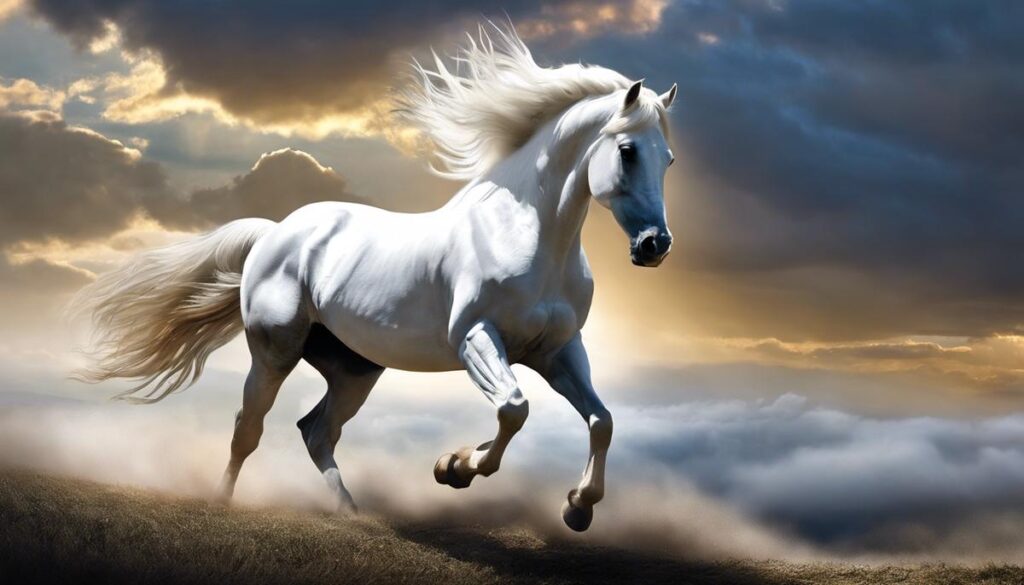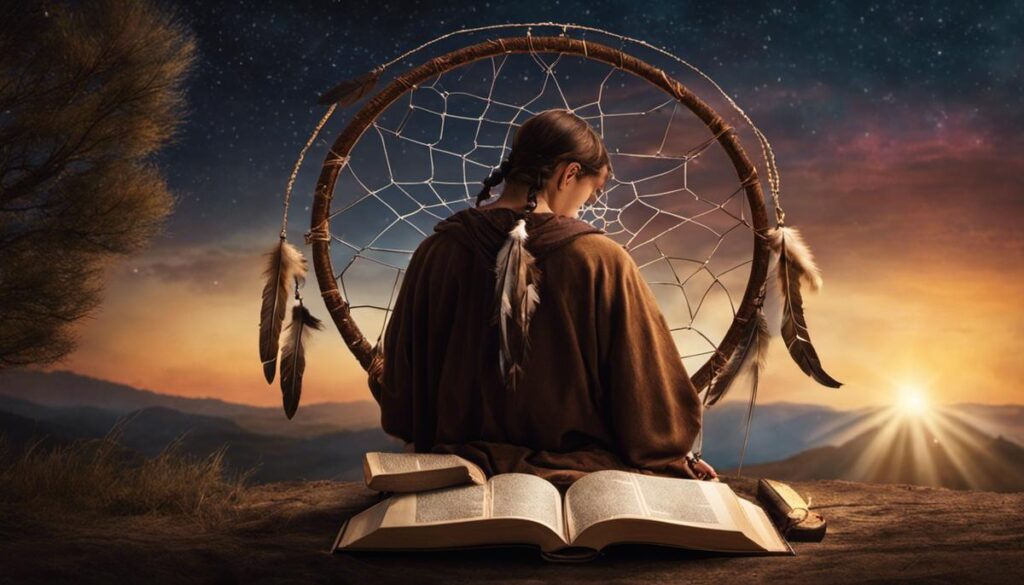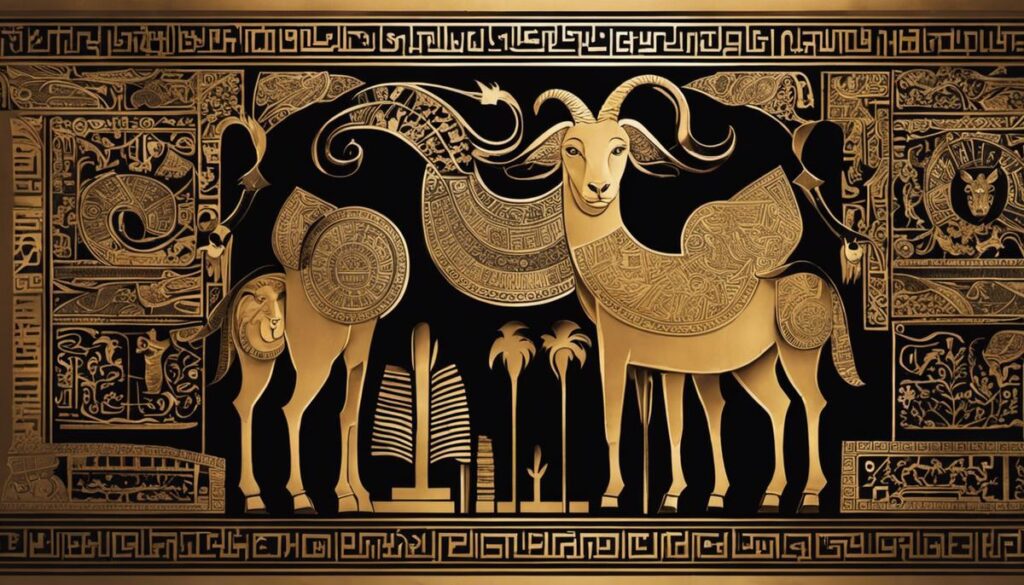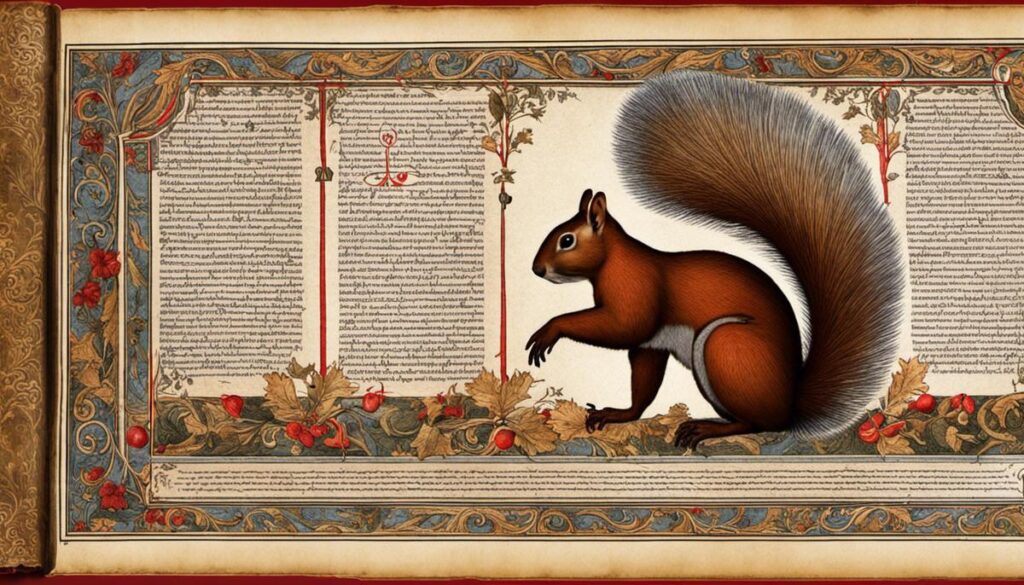The realm of dreams and their meanings has intrigued humanity since antiquity. They’re often seen as gateways to our unconscious minds, mysterious and profound. Among many dream symbols, a white horse holds notable prominence, not just in the psychological realm but also in religious texts such as the Bible. This fascinating dual perspective frames the white horse as an embodiment of victorious strength, purity, or fulfilled prophecies. At the same time, psychology brings forth intriguing insights from its unconscious depths. An exploration of these perspectives not only illuminates a greater understanding of white horse dreams but also encourages a thoughtful introspection into the individual psyche and spiritual belief systems.
Symbolism of White Horses in the Bible
Symbolic Appraisal of the White Horse in Biblical Contexts
Unveiling the profound insights in biblical texts presents an intriguing exploration of historical context, narrative interpretation, and symbolism. One fascinating aspect of this exploration is deciphering what the white horse represents within these texts. Drenched in layers of complex symbolism, the white horse’s imagery appears primarily in the prophetic books of Zechariah and Revelation, offering vivid narratives of eschatological and divine significance.
Firstly, the white horse is intertwined with themes of righteousness and purity. In the Bible, white often symbolizes these attributes- connecting divinity, holiness, and virtue. Thus, the image of a white horse magnifies this purity through its depiction as a majestic and powerful creature. The correlation of whiteness and righteousness is strongly reinforced in the Book of Revelation, where the horse’s rider, often seen as Jesus Christ, wears a robe dipped in blood, yet remains brilliantly white, signifying his transcendent purity despite sacrifice and suffering.
Secondly, the white horse is emblematically associated with victory and conquest. Take, for example, the instance in the Book of Revelation (6:2): “I looked, and there before me was a white horse! Its rider held a bow, and he was given a crown, and he rode out as a conqueror bent on conquest.” Contextually, this verse implies that the rider, armed with a bow and a crown, implies a divine mandate to conquer evil forces, showcasing the triumphant narrative of good over evil.
Additionally, the white horse in Zechariah (6:1 – 6:8) is related to the spirits of heaven and their divine tasks. Here, the white horses are sent to the north country, regarded as the site of Babylon, as agents of God’s judgment. This divine mission further emphasizes their role as celestial beings acting as the direct extensions of divine manifestations on Earth.
Last of all, the apocalyptic implications of the white horse are undeniable. Numerous scholarly interpretations link the white horse of Revelation to the end times. The white horse and its rider are seen as harbingers of the final judgment and the ultimate establishment of God’s kingdom on Earth.
In essence, the white horse in biblical texts represents an amalgamation of purity, righteousness, victory, divine intervention, and eschatological prophecies. Diving into these interpretations, one can appreciate the profound depth of symbolism utilized in biblical narratives and the immense thought that went into consolidating these religious texts. It is an insight into the minds of the ancient authors and their sophisticated understanding of symbol usage to convey complex theology and eschatology.
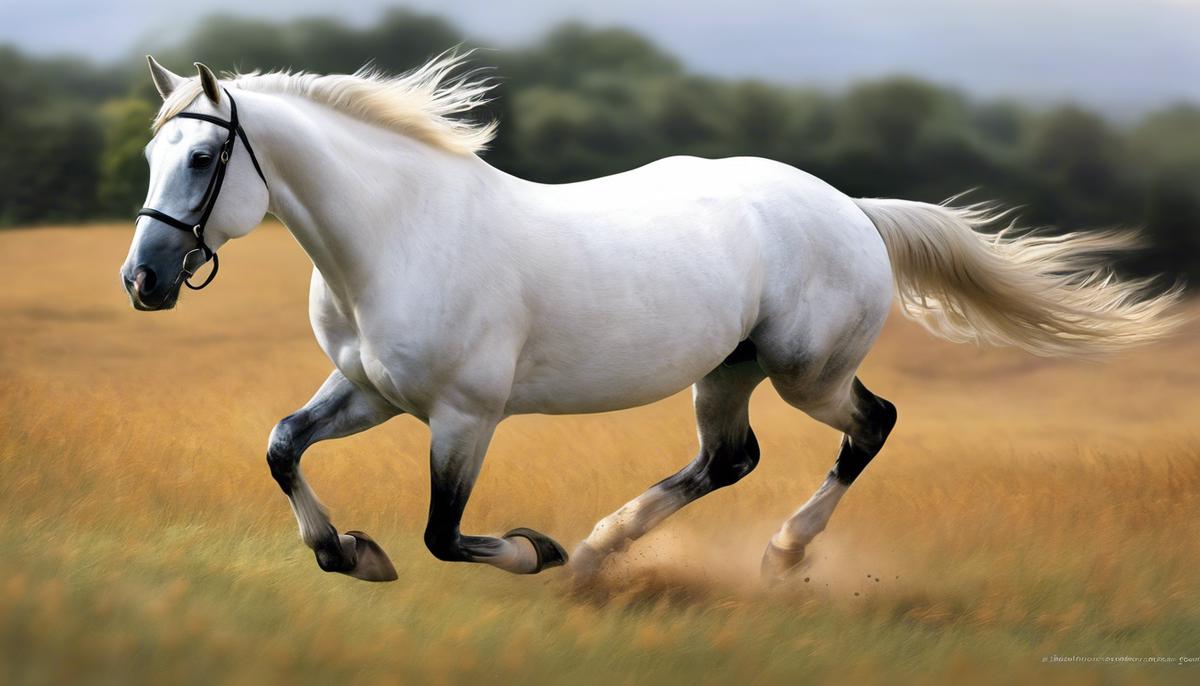
Psychological Perspectives on Dream Analysis
Unraveling the Psychological Interpretations of Dreaming About White Horses
Delving into the immense universe of dreams gives rise to fascinating explorations in the field of psychology. Among the myriad of dream elements, a particularly intriguing one is the image of a white horse. This symbolic icon strays beyond conventional notions of purity and victory, exploring connections to cognitive processes, psychological archetypes, as well as unconscious desires.
Immersed in the paradigm of Jungian psychology, the white horse in dreams mirrors the archetype of the ‘white knight’ or rescuer. This archetype, inherently noble and virtuous, is generally associated with a mission or purpose that the dreamer is meant to fulfill. Accordingly, the vision of a white horse in a dream might relate to deep-seated desires to undertake heroic ventures, often suggesting the resolve to traverse unknown territories and face unchartered challenges.
Expanding this perspective, the field of behavioral psychology offers an interesting slant. Noting the rare occurrence of white horses in everyday life, a dream featuring this creature might indicate an underlying need for uniqueness or a break from conventionalism. The dreamer might be subconsciously expressing an aspiration for novelty and autonomy, yearning to stand out from the crowd and assert their individuality.
In the realm of cognitive psychology, dreams of white horses might concretely relate to recent experiences or thoughts. Hence, the meaning could be traced to events, micro-decisions, or mental engagements that occurred within a day or two before the dream. This psychological proposition, known as the “continuity hypothesis,” establishes that dreams often portray daily concerns or activities, thus making the white horse a symbol of these lived experiences.
Psychoanalysis, particularly Freudian theories, interprets such dreams from a more enigmatic viewpoint. Given Freud’s conviction that dreams are gateways to suppressed desires and latent thoughts, a white horse might represent what has been repressed since childhood, or reflect unconscious yearnings for freedom, power, or recognition.
Furthermore, in the context of developmental psychology, dreams of white horses might reflect transformational phases in the dreamer’s life. As the white horse often symbolizes change and progress, such a dream can mirror a subtle transition phase, representing a momentous juncture or impending change.
Conclusively, psychological interpretations of white horse dreams are as diverse as they are profound, encompassing a myriad of viewpoints and hypotheses. The captivating world of dreams thus offers us a glance into the profound aspects of our cognitive, behavioral, and unconscious state. While each interpretation carries its unique perspective, they collectively merge to elaborate the dreamer’s inner worlds and psychological states. The white horse, then, emerges not merely as a mystical symbol, but as a profound psychological portal.
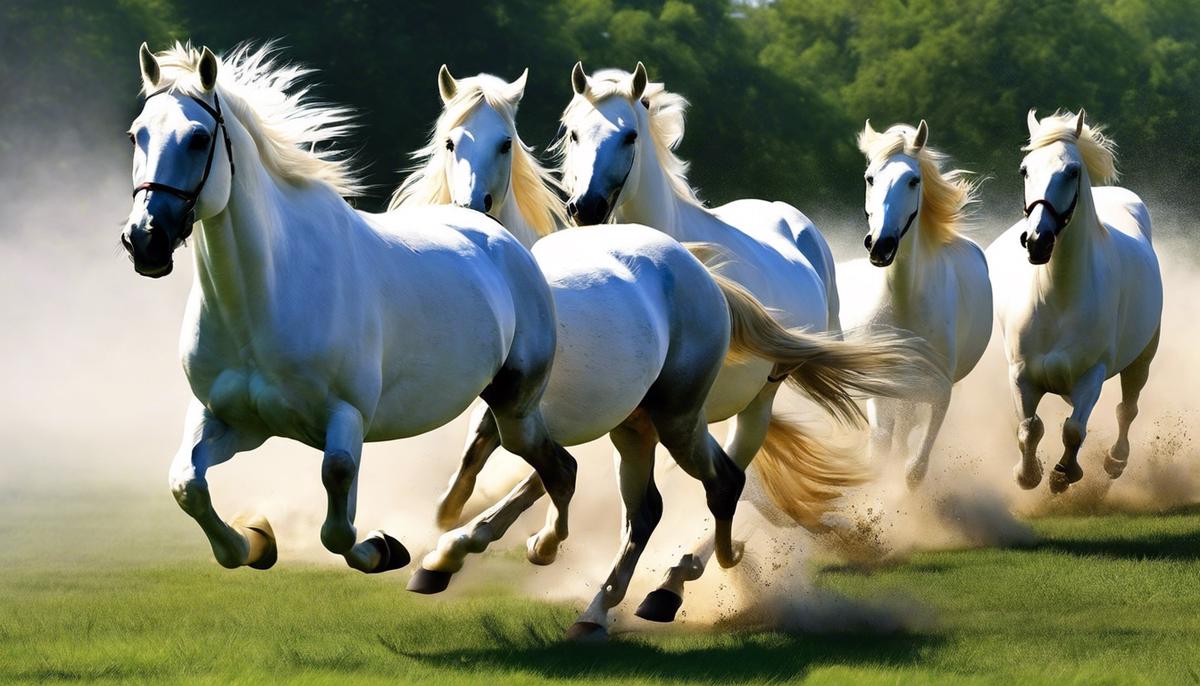
Integration of Biblical and Psychological Interpretations
Mirroring the widely recognized symbology embedded within the Scriptures, the dream analysis in the realm of psychology also attributes significant meaning to the representation of a white horse in dreams. Emphasizing on a robust and comprehensive understanding of these symbols, the study of dreams provides us a unique window into our minds, our emotions, and our very essence as human beings.
Firstly, the image of a white horse in a dream links to individuals’ sense of independence. In psychological interpretation, a white horse dream may indicate the dreamer’s yearning for freedom, autonomy, or a distinct identity. This symbolism is significantly related to Carl Jung’s understanding of dreams as mirrors for our innermost thoughts and desires, reflecting our underlying pursuit for an autonomous existence.
Secondly, the white horse figure can potentially reveal aspects of the dreamer’s personality aligned with Carl Jung’s concept of the ‘persona’. The ‘persona’ represents our public image, the role we play in society; the way we wish for others to perceive us. Dreaming of a white horse may suggest we’re demonstrating or need to show courage, loyalty, or honor within our societal roles.
We then delve into the Freudian realm, whereby dreams serve as wish-fulfillment devices. Accordingly, a white horse could signify suppressed desires or latent thoughts related to power or sexual drive, underlining Freud’s view on dreams disguising our subconscious urges.
The aspect of transformation also figures prominently in dream interpretations. Dreaming of a white horse could identify with a transformative phase in the dreamer’s life, either current or imminent. This is particularly intriguing when evaluated against the backdrop of Biblical symbolism, where white horses often signify divine interventions and new beginnings.
Moreover, the continuity hypothesis, which purports that dreams are an extension of daily life experiences, may play a relevant role in the appearance of a white horse in dreams. For instance, if an individual is involved in equestrian activities or is exposed to white horses in their waking life, these experiences could seep into their dream world, manifesting as dream symbols with deeper psychological meanings.
Dreams remain an intriguing domain at the intersection of science and spirituality. The emblematic white horse serves as a powerful testament to this complex, captivating study area. It provides a dramatic illustration of the dream world’s breadth and depth, mingling with our cognitive, behavioral, and subconscious states. By actively engaging Biblical symbolism with psychological dream analysis, we cultivate a holistic understanding of white horse dreams, assimilating individuality with collective cultural consciousness. It’s a fruitful avenue, encouraging us to continue this exploration of dreams as we stride forth in the captivating domain of cognition and spirituality.
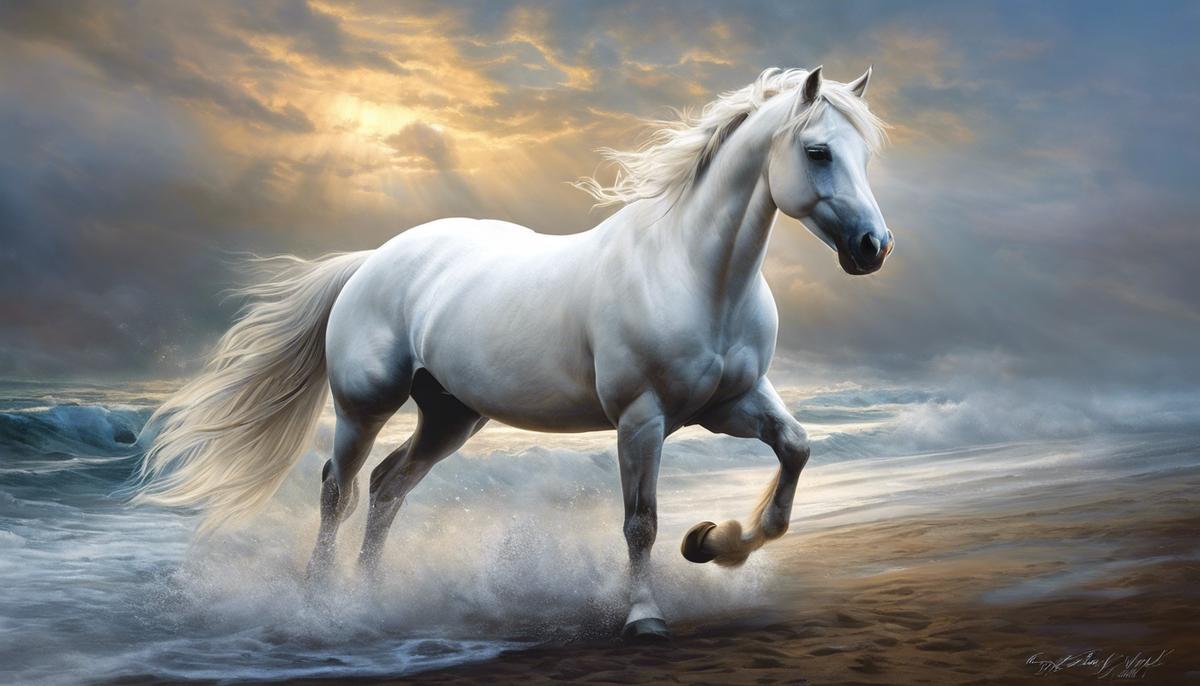
By exploring the white horse symbol from both biblical and psychological perspectives, we gain a richer understanding of its profound symbolism in dreams, as well as the intriguing interplay between tangible and intangible realms of human experience. Dreams, whether involving a resplendent white horse or any other symbol, serve as a fascinating mirror, reflecting our deepest fears, desires, and visions for the future. Therefore, synthesizing these perspectives encourages a holistic understanding that transcends dogmatic boundaries. Attempting to decode such dream sequences truly becomes an enlightening journey, offering fresh insights into not only one’s self but the world’s eternal mystery that surrounds and engulfs us.

